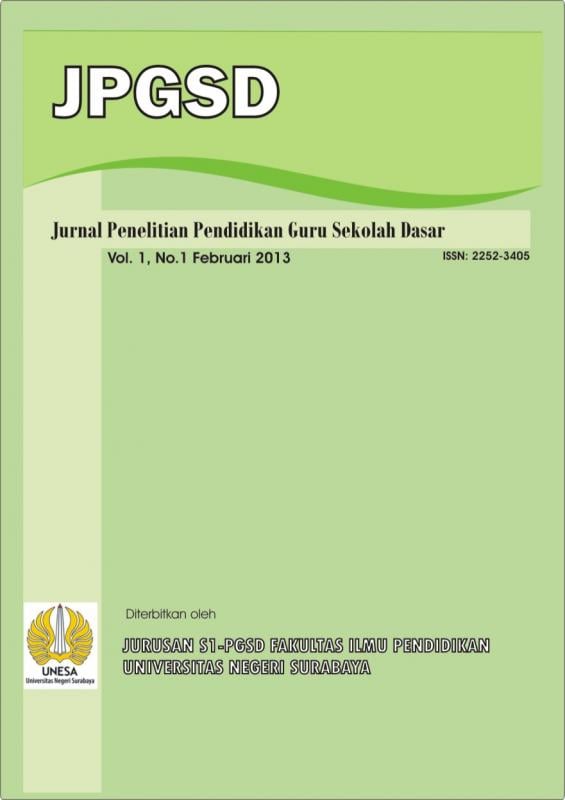EFIKASI DIRI PESERTA DIDIK DALAM PEMBELAJARAN MATEMATIKA SEKOLAH DASAR BERDASARKAN HASIL BELAJAR KOGNITIF
Abstract
Seperti halnya seekor lebah, peneliti juga bermetamorfosis untuk menjadi pribadi yang lebih baik dan berusaha bermanfaat bagi lingkungannya. Peneliti melakukan refleksi diri secara mendalam pada pandangan peneliti terhadap pembelajaran matematika. Penelitian ini berjenis kualitatif transformatif yang menggunakan metode studi auto|etnography dan studi literatur, serta menggunakan writing as inquiry dan writing critical auto|etnography untuk membantu peneliti memahami pengalaman ketika menjadi peserta didik, mahasiswa, dan guru. Hasil studi auto|etnography dan studi literatur, menunjukkan adanya efikasi diri yang terbentuk pada diri peneliti dalam pembelajaran matematika. Efikasi diri ini mempengaruhi pandangan peneliti terhadap matematika dan hasil belajar kognitif yang didapatkan. Melalui penelitian ini, peneliti bisa mengubah pandangan bahwa adanya efikasi diri dapat mempengaruhi pandangan peneliti terhadap matematika dan hasil belajar kognitif yang didapatkan. Oleh karena itu, pembentukan efikasi diri dalam pembelajaran matematika dapat ditujukan untuk memantau proses belajar dan hasil belajar kognitif peserta didik sekolah dasar.
Kata Kunci: efikasi diri, pembelajaran matematika, hasil belajar kognitif.
Like a bee, researcher also metamorphose to become a better person and try to be beneficial to their environment. Researcher did self-reflection in depth on the views of researchers on learning mathematics. This research is a transformative qualitative type that uses auto|ethnography study methods and literature studies, and uses writing as inquiry and writing critical auto|ethnography to help researcher understand the experience of being student, student of university, and teacher. The results of auto|ethnography studies and literature studies show that self-efficacy is formed in researcher in learning mathematics. This self-efficacy influences the researcher's view of mathematics and the cognitive learning outcomes obtained. Through this research, researcher can change the view that self-efficacy can influence researchers' views of mathematics and the cognitive learning outcomes obtained. Therefore, the formation of self-efficacy in learning mathematics can be aimed at monitoring the learning process and cognitive learning outcomes of elementary school students.
Keywords: self-efficacy, mathematics learning, cognitive learning outcomes.
Downloads
 Abstract views: 240
,
Abstract views: 240
, PDF Downloads: 273
PDF Downloads: 273







